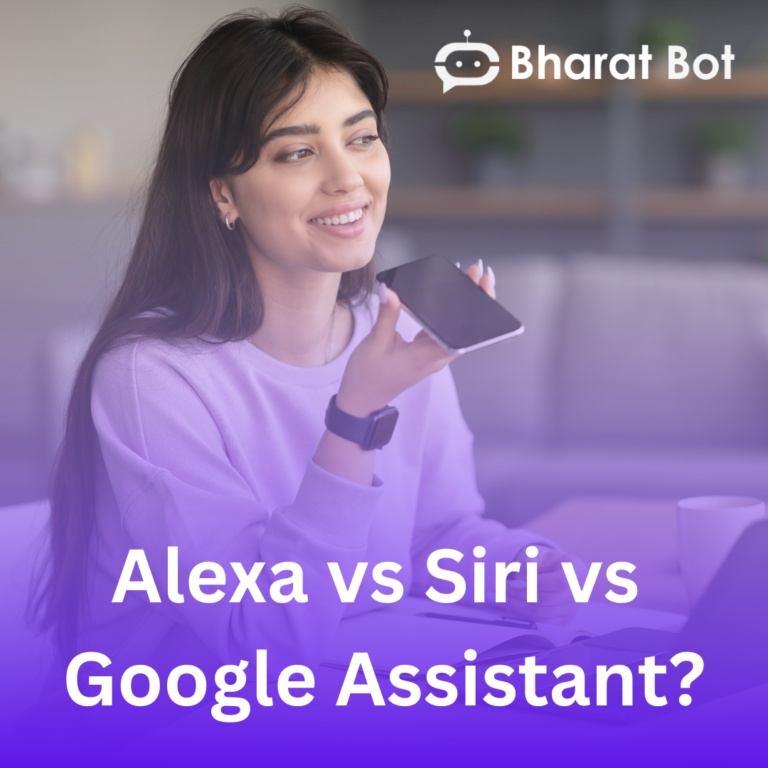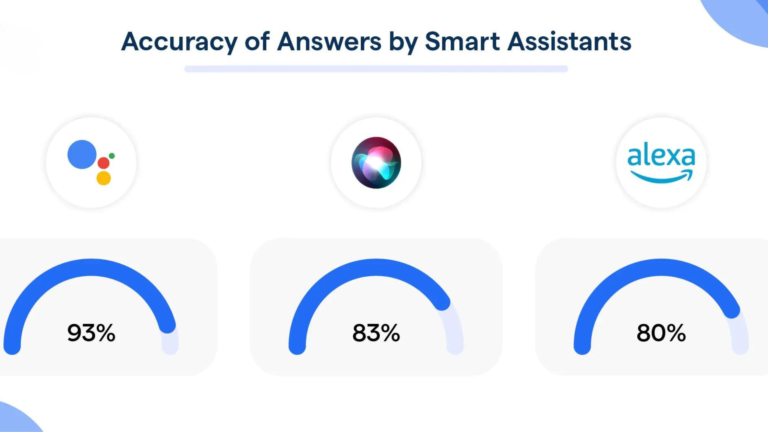
Voice assistants are everywhere these days, from our phones to speakers and even some home devices. They’re like digital helpers that can do all sorts of tasks, like making calls and playing music, just by listening to your voice.
But which one is the best? It’s a tough question! There’s Alexa, Siri, and Google Assistant, each with their own strengths and weaknesses.
To make things simpler, we’re comparing them in a straightforward guide. We’ll look at how they handle different tasks, so you can decide which one suits you best.
Alexa vs Siri vs Google Assistant-
An Overview
First, let’s talk about Amazon’s voice assistant, Alexa. She made her debut in 2014 with the launch of Amazon Echo devices.
Alexa stands out for her compatibility with smart home devices. You can simply say “Alexa” to activate her, and she’ll be ready to assist you.
With over 100,000 skills, Alexa can help you with a wide range of tasks, from ordering pizza to playing your favorite music. It’s no wonder Amazon has sold more than 500 million Alexa-enabled devices!
Now, let’s move on to Siri. Siri has been around since 2011, when she was introduced as part of the iPhone 4S launch.
Siri is known for her witty responses. Ask her a question like “Which cell phone is the best?” and she might quip back, “Wait… there are other phones?”.
Siri seamlessly integrates with the iOS ecosystem, allowing you to send messages, make FaceTime calls, and open apps with just a voice command.
Lastly, let’s talk about Google Assistant. Google Assistant burst onto the scene in 2016 and quickly became a fan favorite.
She boasts sophisticated natural language processing abilities, meaning she can understand and respond to both text and voice commands.
Google Assistant can interact with third-party apps and even provide helpful updates, like calculating your estimated time of arrival while you’re driving.
With her impressive comprehension of context and ability to engage in conversation, Google Assistant feels like the new star of the show.
These are just some highlights of Alexa, Siri, and Google Assistant. To really understand what sets them apart, let’s compare them across various parameters in more detail!
Alexa vs Siri vs Google Assistant
When it comes to answering questions, Google Assistant reigns supreme.
We all know how adept Google’s search engine is at providing accurate and comprehensive answers to a wide range of queries. Therefore, it’s not surprising that Google Assistant outperforms its rivals when it comes to offering thorough and enlightening responses.
With access to vast amounts of information and advanced algorithms, Google Assistant excels at providing detailed and insightful answers to users’ questions. Whether you’re asking about historical facts, scientific concepts, or the latest news, Google Assistant can provide the information you need with precision and clarity.

When it comes to answering questions, Google Assistant reigns supreme.
We all know how adept Google’s search engine is at providing accurate and comprehensive answers to a wide range of queries. Therefore, it’s not surprising that Google Assistant outperforms its rivals when it comes to offering thorough and enlightening responses.
With access to vast amounts of information and advanced algorithms, Google Assistant excels at providing detailed and insightful answers to users’ questions. Whether you’re asking about historical facts, scientific concepts, or the latest news, Google Assistant can provide the information you need with precision and clarity.
It’s widely known that Google’s search engine is exceptionally skilled at providing accurate answers.
Given this reputation, it’s hardly surprising that Google Assistant outperforms its competitors when it comes to delivering thorough and enlightening responses.
To put this to the test, researchers conducted a study where each smart assistant was asked 800 questions.
The results were impressive: Google Assistant successfully understood every question and accurately answered 93% of them.
In contrast, Siri fell behind, managing to answer only 83% of the questions correctly. Meanwhile, Alexa performed even more modestly, answering just 80% of the questions accurately.
Amazon has made efforts to boost Alexa’s performance, increasing her ability to respond to queries by 18% between 2018 and 2019.
In more recent tests, Alexa may have even surpassed Siri in terms of question-answering performance. However, Google Assistant continues to lead the pack.
While Siri performs well in executing commands like sending texts, playing music, and managing your calendar, Google Assistant remains unrivaled in providing accurate and comprehensive answers to questions.
Best for Communication and Voice Commands
When it comes to communication and voice commands, each virtual assistant has its strengths and weaknesses.
Let’s start with Alexa. Alexa is a solid option for staying connected with other Alexa users in your contacts. With the Drop-In feature, available on Echo smart speakers, you can easily chat with anyone who has an Echo device. This feature provides a seamless way to communicate with friends and family, especially if they’re within the same household.
Moving on to Google Assistant, while it may not offer as many communication features as Alexa, it still has some useful capabilities. You can use Google Assistant to make phone calls, send texts, or even audio messages. Additionally, one significant advantage of Google Assistant is its integration with Google Fi or Google Voice accounts, allowing you to make international calls with ease.
Lastly, we have Siri, which stands out as the leader in communication and voice commands. Siri offers a comprehensive range of communication options, including making calls, sending text messages, and even sending emails to anyone in your contacts. A standout feature of Siri is her ability to read messages and emails out loud, making it convenient to stay connected without needing to pick up your phone. Additionally, Siri is the only virtual assistant capable of phoning emergency services in a crisis, providing an added layer of safety and security.
Interested in comparing the costs of Alexa, Siri, and Google Assistant? Let’s break it down:
For Alexa, pricing varies depending on the device you choose. Amazon Echo devices range from $29.99 for the Echo Dot (3rd gen) to $199.99 for the Echo Studio. Additionally, prices for third-party devices that support Alexa vary based on the manufacturer and model.
Moving on to Siri, it’s available on all Apple devices running iOS 5 or later, including the iPhone, iPad, iPod touch, and Apple Watch. Prices for these devices vary depending on the model and storage capacity you select.
As for Google Assistant, pricing for Google Home devices ranges from $49 for the Google Nest Mini to $299 for the Google Home Max. Similar to Alexa, prices for third-party devices that support Google Assistant vary depending on the manufacturer and model.
It’s essential to note that while the devices themselves may have different prices, the voice assistants—Alexa, Siri, and Google Assistant—are all free to use once you have the compatible device. Additionally, each assistant offers a variety of free services and features. However, some premium services may be available for purchase, such as Amazon Music Unlimited for Alexa and YouTube Premium for Google Assistant.
